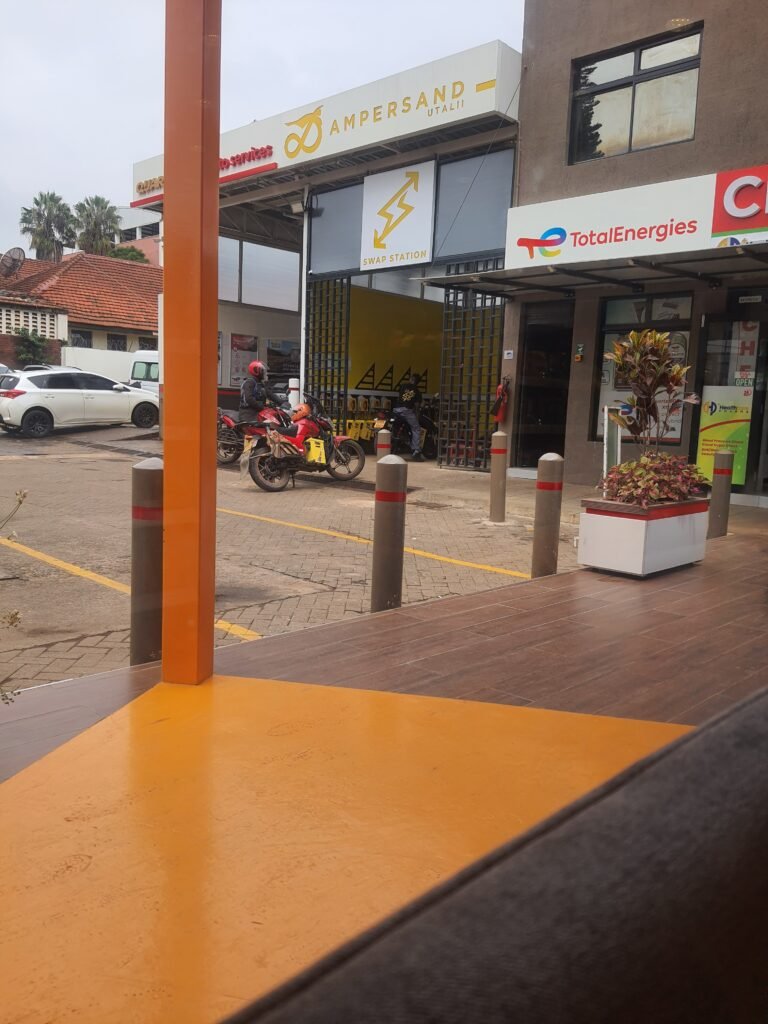Startups offering battery swapping services in Africa are increasing in number, with pioneers leveraging funding for climate-related ventures — and the impact is being felt most in the two-wheeler sector, according to an industry expert.
Ghanaian startup Kofa which specialises in battery network solutions including a robust battery swapping business is one of the latest startups making big moves.
According to Disrupt Africa, Kofa which is about to reach 100,000 battery swaps annually, plans to take its battery-swapping solution to Kenya and Togo.
“Kofa’s core innovation lies in providing high-performance power through its batteries, which are not only cost-effective – being at least 30 per cent more competitive than petrol – but also versatile in their applications,” Kofa CEO, Erik Nygard told Disrupt Africa in an interview.
The company has a multi-use high-capacity battery system called Kore2. Since January of this year, the startup has deployed over 10 charging stations and distributed at least 500 Kore2 batteries, and 150 Jidis – a ‘jidi’ is the startup’s e-motorcycle, which is tailored for the African market.
Kofa is one of the many startups that specialize in battery swapping that are growing fast and expanding rapidly to new markets.
Two and three-wheelers are the fastest-growing transport mode in Africa. The number of motorcycles in Africa grew from less than 5 million in 2010 to more than 27 million as of 2022. McKinsey & Company projects this number to rise to more than 50% of all motorcycle sales by 2040.
Experts believe this booming transportation mode presents an opportunity that can be leveraged to rapidly electrify mobility on the continent.
“The cost of electric two and three-wheelers is relatively low compared to four-wheelers… it is strategically viable to accelerate the electrification of mobility using this segment which ferries most people,” Raphael Ratemo, a Kenya-based sustainability scholar and member of Eco-Africa, a sustainability and climate transition thinktank shares.
“UN data shows an average motorcycle is ten times more polluting for the air per mile than a passenger car or light truck… one of the biggest gaps to last mile adoption of electric two and three-wheelers especially in Africa is related to battery storage gaps,” he adds.
The ongoing surge in the number of startups promises to counter this gap with frontrunners already showcasing the immense potential to replicate success in one market to develop similar solutions across other markets within the continent.
Benin’s Spiro, arguably the largest EV company in Africa which hit 1 million battery swaps in 2023, then operating in three major countries Togo, Uganda and Rwanda, is racing ahead.
Besides expanding to Kenya, Nigeria and Ghana, Spiro boasts an impressive at least 600 battery swapping stations in its roster across Africa. It launched Africa’s first automated battery swapping station in Nairobi in March.
Spiro is set to significantly expand its fleet of electric motorbikes, alongside the associated batteries and swap stations, in Benin and Togo especially after it recently acquired a $50 million debt financing from the African Export-Import Bank (Afreximbank).
Africa Big Deal’s May startup funding report, released on June 10, highlights Spiro’s debt financing as an example of the growing trend in funding for climate-related ventures.
“Funding to climate related ventures has grown from 19% in Jan-May 2021, it grew to 23% in J-M 2022, 32% in J-M 2023, and so far in 2024 represents 44% of all the funding announced.”
Just like Spiro several other startups are deploying the innovative battery-as-a-service model which besides manufacturing and selling electric bikes allows users the the ability to swap a depleted battery for a fully charged one at a swapping station.
Ecobodaa, a Kenyan e-mobility startup founded in 2020, has developed a network of 20 swap stations and a micro pay-as-you-go (PAYGO) payment system for energy purchases after conducting pilots in its first two years. This approach helps counter the high initial costs of battery acquisition.
Rwanda’s Ampersand secured $19.5 million in funding, including $7.5 million of new debt from the Africa Go Green Fund (AGG) in December 2023. Operating in Kenya and Uganda, the company has been expanding its battery swapping services as part of a larger plan to increase its fleet from 1,350 to 10,000 electric motorcycles by the end of 2024.
“In the short term, we will transform the e-motorcycle recharging landscape by strategically placing battery exchange stations within 5 to 10 km of all operational areas in the Kenyan capital,” explained company head Josh Wale in a December 2023 statement. The plan is to roll out 16 swap stations in Nairobi this year, in addition to the 26 stations already serving clients in Rwanda.
Zembo’s 27 swap stations in Kampala are serving the Ugandan market. Other companies, such as Roam, ARC Ride, and Chaji Energy, are also heavily investing in battery swapping stations across various African markets, bringing hope to the future of last-mile e-mobility in Africa.
“Motorcycles are utilized in even the most remote parts of the continent. By addressing charging infrastructure gaps, battery swapping could facilitate wider adoption of electric motorcycles, extending their usage not only to urban areas but also to the most isolated regions,” Ratemo explains. – By Bonface Orucho/Bird Story Agency


